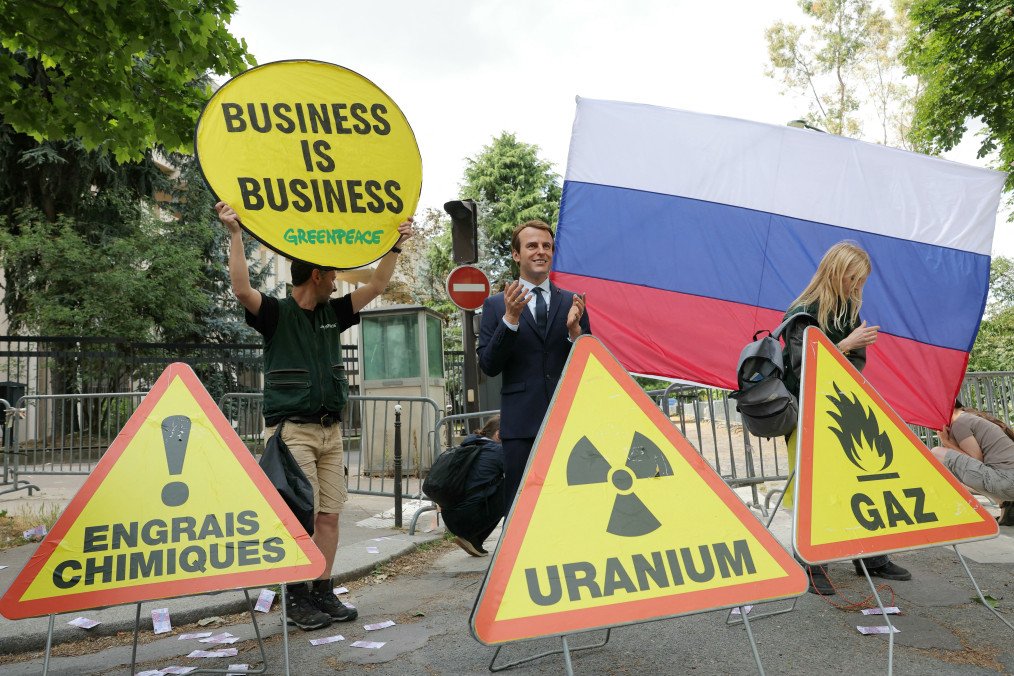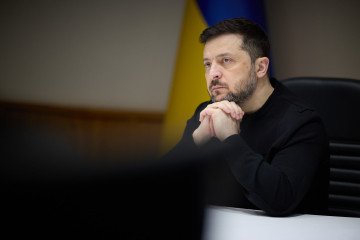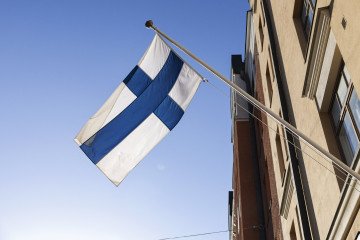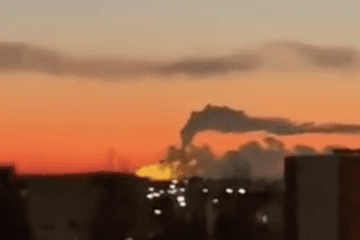France and Belgium—Europe’s two largest importers of Russian liquefied natural gas (LNG)—are refusing to back a proposed European Commission plan to ban imports of Russian gas, demanding more clarity on the legal and economic fallout before making a commitment, according to a Politico report on June 4.
Both countries have expressed hesitation over the Commission’s push to cut off Russian LNG in response to Moscow’s ongoing war against Ukraine. France has emphasized its preference for diversification over outright bans, while Belgium wants a detailed analysis of the plan’s economic impact.
“We are defending the European diversification strategy… which is already on the table,” said French Energy Minister Marc Ferracci in an interview with Politico, referencing France’s strategy to replace Russian gas with supplies from Qatar.
-32f751d0d02b7fa3fb7ecaf27b642a10.jpg)
Ferracci also raised concerns about legal liability for companies tied to long-term contracts. For example, French energy giant TotalEnergies is locked into a supply agreement with Russia’s Novatek through 2032 and holds a 20% stake in the Yamal LNG project in Siberia.
“There must be legal certainty,” Ferracci warned, suggesting the EU’s plan could expose European firms to legal challenges from Russia over broken contracts.
Belgium, the EU’s second-biggest Russian LNG buyer, is similarly cautious. The country intends to continue receiving and storing Russian LNG until 2035 and has demanded that Brussels present a comprehensive assessment before moving forward.
“Before the EU presents its proposals, we ask the Commission to deliver an in-depth impact assessment,” said Belgian Energy Minister Mathieu Bihet, adding that Belgium will hold technical talks to evaluate how the measures might affect its LNG infrastructure.
The reluctance from France and Belgium puts them at odds with Spain and the Netherlands, the EU’s third- and fourth-largest buyers of Russian LNG, both of which support the ban. The proposal would prohibit new short-term purchases in 2025 and phase out long-term contracts by 2027.
Despite mounting pressure to sever ties with Russian energy, the four countries—France, Belgium, Spain, and the Netherlands—imported a combined 16.77 million tons of Russian LNG last year, accounting for 97% of all EU imports and over half of Russia’s global LNG exports. Collectively, they spent more than €6 billion on the purchases.
-4311f66b021df23a1eff29eba5d0d105.png)
The support of all four countries is considered vital for the Commission’s plan to succeed. With Hungary and Slovakia expected to oppose the move, Brussels is looking to its biggest buyers to help drive consensus.
Behind the scenes, EU officials are reportedly preparing a legal and economic impact study to help sway hesitant member states. “A document analyzing the consequences of the measures is in the works,” an EU source confirmed.
Earlier, reports emerged that Russia’s $973 billion oil and gas revenues triple Western aid to Ukraine. Russia continues to earn massive profits from fossil fuel exports—money that helps fund its war in Ukraine—despite sanctions from the US, UK, and EU.
Since the beginning of the full-scale invasion in February 2022, Russia has earned over €883 billion ($973 billion) from oil, gas, and coal exports—three times more than Ukraine has received in allied aid. Over €228 billion ($251 billion) of that came from countries that imposed sanctions, with the EU alone paying €209 billion ($230 billion).









-72b63a4e0c8c475ad81fe3eed3f63729.jpeg)